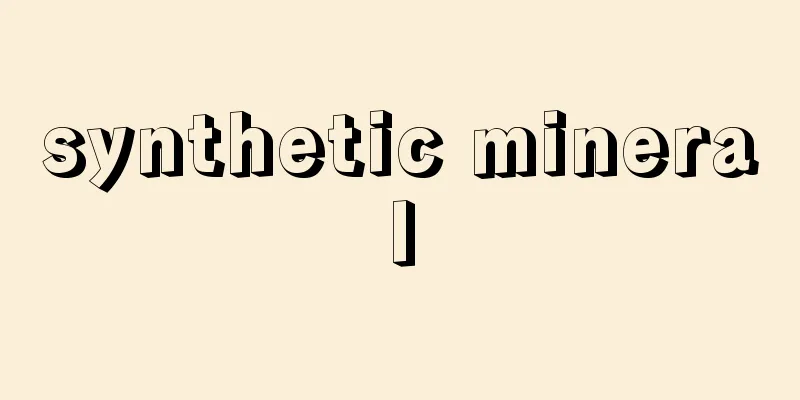Status - mibun (English spelling) status English

|
This concept does not necessarily remain constant from country to country and from time to time. (1) In the broadest sense, it means the status that an individual occupies within a particular society or a group within it, along with the roles that accompany it, and the rights and obligations that are associated with some kind of hierarchical or equal status with respect to others. In this case, the factors that constitute status include lineage, family background, property, power, occupation, income, education, and honor, and are evaluated based on these in terms of superiority or inferiority. (2) The status seen in the law of personal status and family law refers to human relationships between parents and children, spouses, siblings, and relatives that are characterized to some extent by relationships of domination and subordination, and authority and obedience. (3) As a historical concept, status refers to an innate social position that is fixed by heredity, as seen especially in medieval feudal society. In this case, because this status is innate, it is extremely closed and fixed, and its mutually exclusive and closed nature is further strengthened by legal restrictions such as restrictions on marriage, hereditary occupations, or adherence to a certain lifestyle. Thus, within a society, each status is determined according to the degree of social honor or prestige enjoyed, and is characterized by the presence or absence of status privileges, the high or low status of lineage or family status, and the corresponding unique lifestyle, lifestyle, occupation, and education, and these are cultivated in a pure form. This type of status is also called a closed class, and, apart from its historical meaning, it can also mean a social class more generally (a class based on prestige through discriminatory evaluation or a class with a strong status character). [Akira Hamashima] Status and discriminationAn example of a historical concept of social status is the social status of samurai, farmers, artisans, and merchants in medieval feudal society. These social statuses are usually inseparably linked to the professions people perform in a given society, and each profession is accompanied by its own lifestyle, customs, consciousness, and behavioral patterns. These characteristics are then given discriminatory social evaluations, and they are accompanied by hierarchical and dominant relationships, with the degree of prestige and honor, and the presence or absence of privileges. In such cases, the possession of economic power such as wealth and financial power does not necessarily lead to high social respect or honor. Rather, it is the social respect (and therefore honor and prestige) given to a certain lifestyle or lifestyle that is important. This is why nouveau riche people seek out noble titles and government positions, and imitate the lifestyle of nobles (townspeople aristocrats). As we have seen, the lifestyles, attitudes, and privileges of each class are legally fixed and hereditary, as the ruling upper classes need to justify their rule and maintain the class order. When this hereditary fixation progresses and class distinctions are guaranteed not only by law but also by religion and ritual, the caste system is established. The prestige hierarchy and ruling order (caste system) of ancient India, Brahmins, Kshatriyas, Vaishyas, Shudras, and untouchables, severely restricted free contact between different castes (prohibition of eating together, prohibition of intermarriage, etc.), and justified itself by the idea of reincarnation through karma and karma, but in modern times it is undergoing a process of disintegration under the trend toward modernization. Incidentally, there is also racial social discrimination between whites and blacks in the southern United States, which is accompanied by inequality in political and economic rights and status, as well as racial discrimination and prejudice, but this can also be said to be a variation of the caste system. [Akira Hamashima] "Introduction to Cultural Anthropology" by R. Linton, translated by Shimizu Ichitaro and Inukai Yasuhiko (1952, Tokyo Sogensha) " ▽ "Power and Domination" by M. Weber, translated by Hamashima Akira (1954, Misuzu Shobo)" [Reference] | | | | |Source: Shogakukan Encyclopedia Nipponica About Encyclopedia Nipponica Information | Legend |
|
この概念は国により時代によってかならずしも一定しない。 (1)ごく広義には、特定の社会またはその内部の集団のなかで個人が占める地位を意味し、それに付随する役割とともに、他に対しなんらかの上下・同等の別とつながる権利・義務関係を伴う場合をいう。この場合の身分を構成する要因は、血統や家柄、財産や権力、職業や収入、教養や名誉などであって、それらに対して上下・優劣の差別評価がなされる。 (2)身分法や親族法にみられる身分とは、親子、夫婦、きょうだい、親族の間の人間関係が多少とも支配と被支配、権威と恭順の関係を特色とする場合にいわれる。 (3)歴史的な概念としての身分とは、とくに中世の封建社会にみられるような、世襲によって固定化された生得的な社会的地位をいう。その場合、この地位は生得的であるためにきわめて閉鎖的・固定的であり、しかもそれが通婚の制限とか職業の世襲あるいは一定の生活様式の遵守などのように法的な規制を受けることによって、相互に排他的・閉鎖的な性格をいっそう強めることになる。こうして、ある社会の内部で社会的名誉とか威信の享有度に応じてくぎられた各身分は、身分的特権の有無とか系統や家格の高下・貴賤(きせん)およびそれらに対応する固有の生活様式や生活態度、職業や教養によって特徴づけられ、それらを純粋培養することになる。この種の身分は閉鎖的階級ともよばれ、また、歴史的な意味を離れて、より一般的には社会階級(差別評価による威信に基づく階級または身分的性格の強い階級)を意味することもある。 [濱嶋 朗] 身分と差別歴史的概念としての身分の例としては、中世封建社会における士・農・工・商の身分別がある。これらの身分別は、通常、一定の社会のなかで人々が営む職能の別と不可分に結び付いており、それぞれの職能に特有の生活態度、慣習、意識、行為様式などが付着する。そして、これらの諸特徴に対し差別的な社会的評価が与えられ、威信や名誉の大小、特権の有無などを伴う上下、支配・被支配の関係を伴うことになる。その場合、富力、財力といった経済的勢力の所有はかならずしも高い社会的尊敬を受け、名誉を与えられるとは限らない。むしろ、ある特別の生活様式や生活態度に対して与えられる社会的尊敬(したがって名誉や威信)が重要な意味をもつ。にわか成金が貴族の称号や官職を買い求めたり、貴族の生活様式を模倣したりするのはそのためである(町人貴族)。 すでにみたように、身分別の生活様式、生活態度、特権などは、支配的上層身分が自己の身分支配を正当化し、身分秩序を維持する必要から、法制的に固定化され、世襲化されるが、この世襲的固定化がさらに進んで、身分別が法制上ばかりか宗教的、儀礼的にも保証されるようになると、カーストが成立する。古代インドのバラモン、クシャトリア、バイシャ、シュードラ、不可触民の威信序列と支配秩序(カースト制度)は、異なるカースト間の自由な接触を厳しく制限し(食事の同席の禁止、摂食禁制、通婚の禁止など)、また業による輪廻(りんね)・因果応報思想によって自らを正当化してきたが、現代では近代化の趨勢(すうせい)下で解体過程をたどっている。なお、アメリカ南部における白人と黒人の間にも人種に基づく社会的差別があり、政治的・経済的な権利と地位の不平等、人種的な差別と偏見を伴っているが、これもカーストの変形といえないことはない。 [濱嶋 朗] 『R・リントン著、清水幾太郎・犬養康彦訳『文化人類学入門』(1952・東京創元社)』▽『M・ウェーバー著、濱嶋朗訳『権力と支配』(1954・みすず書房)』 [参照項目] | | | | |出典 小学館 日本大百科全書(ニッポニカ)日本大百科全書(ニッポニカ)について 情報 | 凡例 |
<<: Social hierarchy - Mibunkaisousei
Recommend
Meganthropus - Megantropus (English spelling)
This fossil human was excavated from Sangiran in ...
Hygrophila lancea (Thunb.) Miq.
A perennial plant of the Acanthaceae family found ...
Star anise - Star anise
An evergreen shrub of the Illicaceae family whose ...
Sita (English spelling)
In Sanskrit, it means "ridges." The word...
Wasconia - Wasconia
…The province of Navarre is part of the former Ki...
Ibota - Ibota
…In the case of the Edo people of the Kingdom of ...
Androgenic gland
Also called the male gonad. A string-like glandula...
Class 1 attached - Ichiruizuke
…In the Edo period, a document in which a samurai...
Mount Wilson Observatory
An observatory located on the summit of Mount Wils...
Early modern daimyo
...Daimyo, the term used to refer to warriors dir...
Echeneidae
…the name refers to a general term for fish in th...
Tisza [river] - Tisza
A tributary of the Danube that runs north to south...
Tsuge [village] - Tsuge
A village in Yamabe County, northeastern Nara Pref...
credo, quia absurdum est (English spelling) credo quia absurdum est
…The phrase “Christ became flesh. This is believa...
Cornstarch - corn starch
Starch extracted from corn kernels. Corn is soake...





![Naruko [town] - Naruko](/upload/images/67cc68f4758d4.webp)



